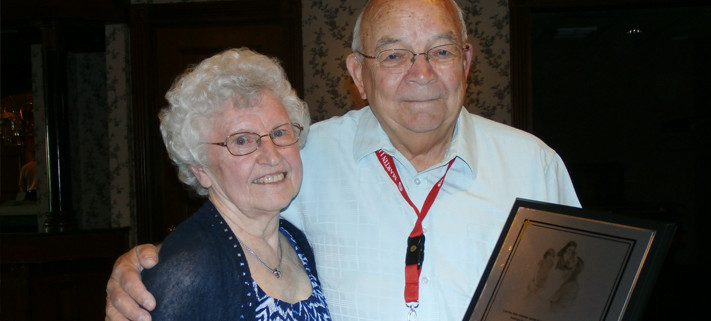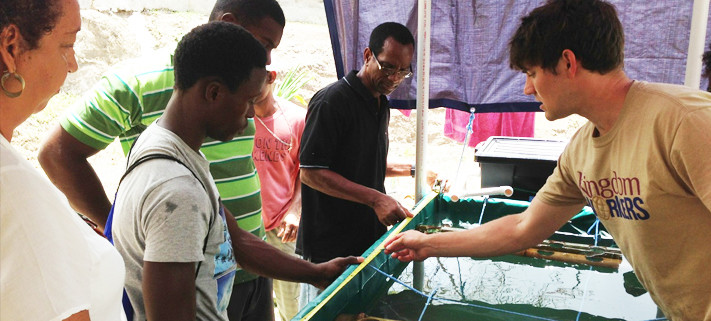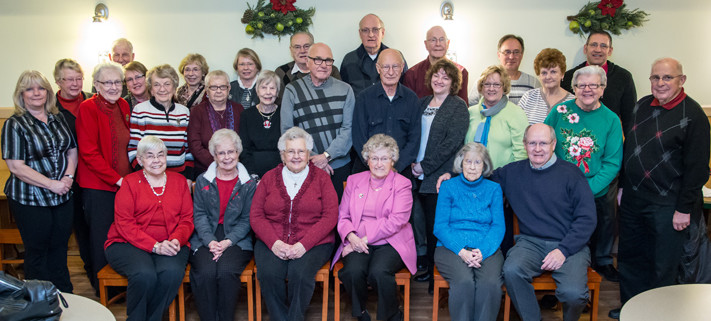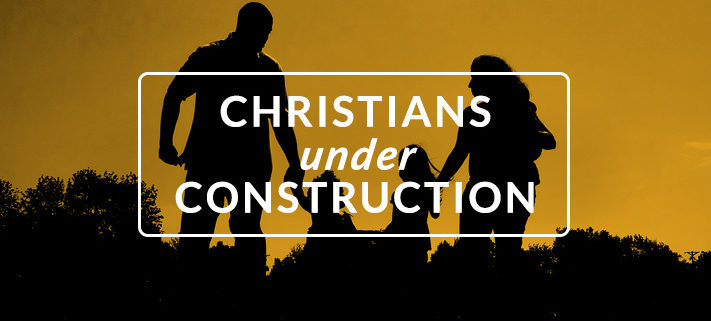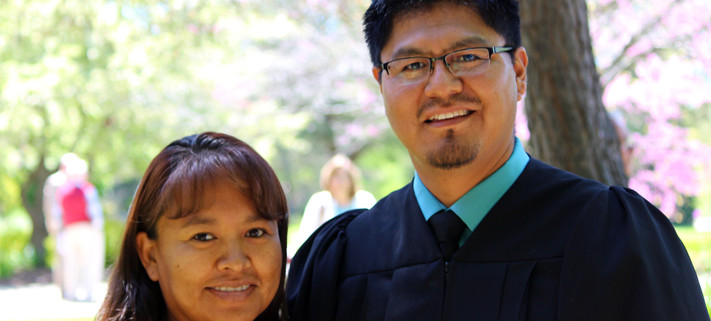“Lutherans are bred from childhood to sing in four-part harmony. It’s a talent that comes from sitting on the lap of someone singing alto or tenor or bass and hearing the harmonic intervals by putting your little head against that person’s rib cage. It’s natural for Lutherans to sing in harmony. We’re too modest to be soloists, too worldly to sing in unison. When you’re singing in the key of C and you slide into the A7th and D7th chords, all two hundred of you, it’s an emotionally fulfilling moment.”
Singing for Lutherans, Garrison Keillor
Much of my childhood was spent as a “choir orphan.” There are many memories of time spent in a church balcony with my parents, relatives, and family friends who served as choir directors, organists, and various singers in every section of the choir. Family gatherings always included group singing, with repertoire spanning the gamut from beloved hymns to folk songs and other familiar songs common to Americans. As a result of this rich upbringing, there are moments today that I lament the loss of this communal singing tradition in the lives of my fellow Americans. It has been suggested that the church may be one of the last places where people engage in group singing!
Without the tradition of group singing, it stands to reason that children have also lost exposure to part-singing that has been an integral part of the church’s song. While the media inundates us with music and singing in all forms, our children are often merely spectators as opposed to creators of God’s gift of music. Music making becomes something that belongs exclusively to the musically gifted. Yet, in my work with children and high school students, it quickly becomes apparent that choral singing is still an enriching experience for young singers. Combine the Word of God with the beauty of choral singing and watch young singer’s eyes grow wide with wonder! Watch the eyes of congregation members grow moist from the honest proclamation of the Gospel through beautiful treble singing!
How do we establish solid part-singing skills in children, equipping them for a lifetime of joyous praise to our almighty God? Part-singing is a developmental skill that can be cultivated through careful teaching and selection of music. It is easy to assume that if we ask children to open their hymnals to a simple hymn such as “Glory Be to Jesus” and sing the soprano and alto line, they should immediately sound angelic! Nothing could be further from the truth and many a director has left the rehearsal discouraged that their children “can’t sing.” The secret to building good part-singing skills is in the selection of music where the parts are independent, with movement and tonal relationships that qualify each part as a melody unto itself. Traditional hymn settings use parallel harmony, which is challenging for children who have not had training in part-singing. Even alto parts in parallel harmony that hover around three to four repeated notes can confound young singers because they have no sense of a melody taking place.
When we teach part-singing skills, we are developing the ear and its capacity to hear one or more parts while singing another. Unless children (and adults!) are able to acquire these inner hearing skills, part-singing will be a difficult and frustrating experience. Singing experiences that employ independent part writing give children something to “hold on to,” which in turn builds inner hearing. By following a sequence of steps with appropriate repertoire, all children can learn to sing in parts. Think of these steps as a pyramid, beginning at the bottom and working to the top.
Four-Part Parallel Harmony
Three-Part Parallel Harmony
Four-Part Rounds, Canons, Countermelodies, etc.
Two-Part Parallel Harmony
Three-Part Rounds, Canons, Countermelodies, etc.
Two-Part Partner Songs
Two-Part Counter-melodies and Descants
Two-Part Rounds
Ostinato (a short musical pattern that repeats)
Shared Melody Songs
Singing with Beat and Rhythm
In-Tune Singing
Teachers of primary grades (K4-Grade 2) begin this process with the first three steps in the sequence. It is crucial that children become in-tune, independent singers by the time they reach third grade. While teachers of older children can establish these foundational skills, the process becomes more difficult as children age. There is no substitute for attention to the use of head-voice and beautiful unison singing in primary grades! Children begin to build part-singing skills when they sing a song while tapping the beat, rhythm, or simple rhythmic ostinato pattern. Singing a song while performing simple movement is also part singing. Call-and-response songs, echo songs, chain-phrase singing, and antiphonal singing are all examples of shared melody songs that establish a foundation for future part-singing. Examples can come not only from sacred literature but also from the vast body of children’s folksong repertoire.
If solid preliminary work has been done in the primary grades and at least 90% of a group of children are in-tune singers, the real work of part-singing can begin. Rounds are a wonderful way to build part-singing skills and children cannot sing too many of them. Ostinatos are short melodic patterns that repeat over the course of a song or section of a song. Many excellent collections of rounds are available with both sacred and secular examples. It is also easy to create an ostinato from a short phrase of a round.
When introducing songs utilizing rounds or ostinatos, begin with a careful teaching sequence:
- Teach the main melody until the children are able to sing it confidently without the piano or teacher.
- Have the class sing the song while the teacher sings the ostinato or second part of the round.
- Switch parts. The teacher sings the song or leads the round and the class sings the ostinato or second part of the round.
- Divide the class in two sections and perform in two parts. It is helpful to place a couple of strong singers in the first group to begin the round or sing the melody. These singers will support their classmates while the teacher brings in the second group. The second part in a round or the ostinato is always more challenging for young singers.
- Switch groups.
- It should be a goal for the teacher to stop singing with children and simply conduct as soon as possible. The end result should be a children’s performance.
- Other applications in this process include:
- Have a small semi-section of children lead the group while the rest of the class follows.
- Have a soloist lead the group while the rest of the class follows.
- Have two semi-sections sing the song in parts.
- Have two soloists sing the song in parts.
All singing of rounds and ostinatos should be done without piano. This enables children to hear themselves and the other part clearly. Good inner hearing skills will be stronger if children hear only themselves and their group. Furthermore, a piano will often “muddy the waters” for many children and they will not know which notes are theirs. The end result of such a cappella singing will be more confident and independent singers.
If children falter, simply try again. If the song continues to fall apart, back up and re-establish the last successful step. Don’t try to complete the whole process in one setting. Most likely, it will take several “chunks” within successive rehearsals to work through this sequence, and there is no need to rush the process. When training the ear, repetition and reinforcement are important. The learning process should be one of joy and discovery, and children will be excited and intrigued by what they hear. If the ensemble is successful at each step of the process, the singers will almost always be self-motivated.
Once singers are successful with rounds and ostinatos, venture into countermelodies, descants, and partner songs. At this point, you can move freely from one compositional device to another. Singers in Grades 4-8 will be successful with these songs if a firm foundation of earlier skills has been established. Songs with countermelodies have a familiar melody (hymn tune) paired with another independent melody. Each melody is introduced separately in unison and then combined together. A descant is a higher melody that is paired with a familiar melody. Partner songs are two established songs that sound good when sung simultaneously. Children love part-singing and will accept the challenge of each song. Once again, a process for establishing skills can be followed:
- Teach both parts to everyone. Most of these songs have equal vocal ranges in both parts, so there is no “soprano” or “alto.” Use such terminology as “Treble 1 and 2” or “Part 1 and 2.”
- When putting parts together for the first time, the teacher can sing one part while the group sings the other part. If one melody is a familiar hymn, let the children begin with the hymn. When singers are comfortable singing those two parts with their teacher, switch parts.
- When children are confident singing in parts with their teacher, divide the group into two parts.
- If at any point the song breaks down or the harmony sounds “fuzzy,” try again or back up and reinforce a previous step.
Once singers have experienced several types of part writing, simply teach the music in parts from the beginning and employ the previous steps when challenges arise.
What about boys? Part-singing is intriguing and satisfying for boys and can be a strong motivator to keep singing. Encourage (insist!) boys to sing in their “high voice” until vocal change happens naturally around Grades 7-8. Talk to boys about vocal change and the importance of staying in their “high voices” until vocal change occurs. Offer encouragement and support when voices begin to move down. It is often more effective to have changed or changing voices sing the higher part one octave lower if the ensemble is doing two-part work. However, if students are experienced part-singers, it will be possible for a choir to do three-part music with independent parts, including octavos labeled “three-part mixed.” These arrangements can be a perfect fit for changing boys’ voices. How exciting for those young men to have their own part! Furthermore, high school choir directors will be thrilled when well-prepared tenors and basses arrive at their high school program.
As the rehearsal process progresses, take the time to work on other choral skills such as good breathing, phrasing, tall vowels and crisp diction, and sensitive dynamics and articulation. Each of those choral elements will improve intonation and bring warmth and vitality to the choral sound. Children know when they sound good and they will work hard for directors who bring out their best! Aspire for musicality and artistry, and make the connection between the scriptural text and how the composer chose to craft the piece. It is amazing the spiritual insights child singers will bring to their work! The same children will then give heartfelt performances that are truly the “living voice of the Gospel.”
How does a director know if singers are ready to move to parallel harmony in two, three, and four parts? If children are learning multiple songs utilizing independent part writing quickly, effectively, and confidently, they might be ready for parallel writing. When moving to parallel harmony, look for octavos that approach two-or-more parallel parts from the unison and then return to unison writing within a phrase or section. This will ground singers while their ears adjust to the parallel harmony. Warm-ups in solfege (do, re, mi, etc.) using chordal patterns found in the music can help establish the sound in young ears prior to singing it in the music. Utilize past rehearsal process steps when necessary. By this time in the part-singing process, children’s ears will be pretty keen and the process moves faster and smoother.
May these steps to successful part-singing be applied to adult choirs? Absolutely! If an adult choir constantly sounds “fuzzy” or sings individual parts well but cannot hold their parts in a group when singing parallel harmony, it could be that their part-singing skills are not as developed as they need to be for traditional SATB choral writing. Look for music that employs independent part writing in at least part of the octavo. While it can be a treasure hunt, much fine SATB music exists that employs rounds, descants, countermelodies, and partner songs. SATB octavos that employ occasional doubling of the soprano-tenor parts and/or alto-bass parts or voice leading utilizing imitation also lend support to older singers. In addition, two-part mixed or SAB settings can build necessary inner hearing skills. Rounds with more musical substance exist and can be used as part of the warm-up routine. With a little intervention, adult choirs can improve their part-singing skills in musically satisfying ways.
Building good part-singing skills in young singers takes time. It takes time to research the perfect octavo that satisfies not only the liturgical season of the year and the lectionary for a particular worship service, but the appropriate level of part-singing skills for the intended choir. There are many sensitive composers and arrangers of children’s sacred choral literature featured in almost every publisher’s catalog. Careful planning of repertoire and rehearsals will manage learning time efficiently and allow children to grow in their choral skills without being rushed. With patience and time, all children may experience the thrill of making joyful noises to the Lord. Children are most capable of proclaiming a powerful witness of the Gospel through their music. May we lead them to proclaim with the psalmist:
I will sing of the Lord’s great love forever; with my mouth I will make your faithfulness known through all generations. Psalm 89:1
Written by Marjorie Flanagan
Marjorie serves as the Fine Arts Coordinator and Choral Director at Wisconsin Lutheran High School, where she teaches Freshman Choir, Church Music, and Musicianship through Handbells. She directs the Jubilation Handbell Choir and coordinates several elementary school music activities. She received her Bachelor of Music degree and Kodály Certificate from Alverno College and a Master of Church Music degree from Concordia University Wisconsin.
Children’s Sacred Choral Repertoire Using Independent Part Writing
The following octavos are examples of beginning part-singing literature.
Melody Sharing
This Little Light of Mine
Arranged by Mark Patterson
Choristers Guild CGA1108
The Lord is My Light
Michael Bedford
Choristers Guild CGA878
(There are brief excursions to parallel harmony, but they make so much sense that children are bound to be successful.)
Rounds
Savior of the Nations, Come
Linda Moeller
NPH
Christ Be My Leader
Michael Bedford
Augsburg 0-8006-77439
Descants
Silent Night
Mark Patterson
Choristers Guild CGA 1315
Children of the Heavenly Father
Jeremy Bakken
Choristers Guild CGA 1380
Countermelodies
An Invitation for Advent
Ruth Elaine Schram/Douglas Nolan
Shawnee Press 35029815
The Lord’s My Shepherd
John Eggert
NPH 28N6015
Ostinato
A Christmas Introit (Hodie Christus Natus Est)
Audrey Snyder
Shawnee Press 35029816
What Wondrous Love Is This?
from “Children Rejoice and Sing, Volume 1”
Jeffrey Blersch
Concordia 97-7074
(Both Volumes 1 and 2 of “Children Rejoice and Sing” contain excellent arrangements for beginning part singers.)
Partner Songs
Yesu Kwetu ni Rafiki (What a Friend We Have in Jesus)
Mark Burrows
Choristers Guild CGA 1234
Away in a Manger
from “Children Rejoice and Sing, Volume 1”
Jeffrey Blersch
Concordia 97-7074


